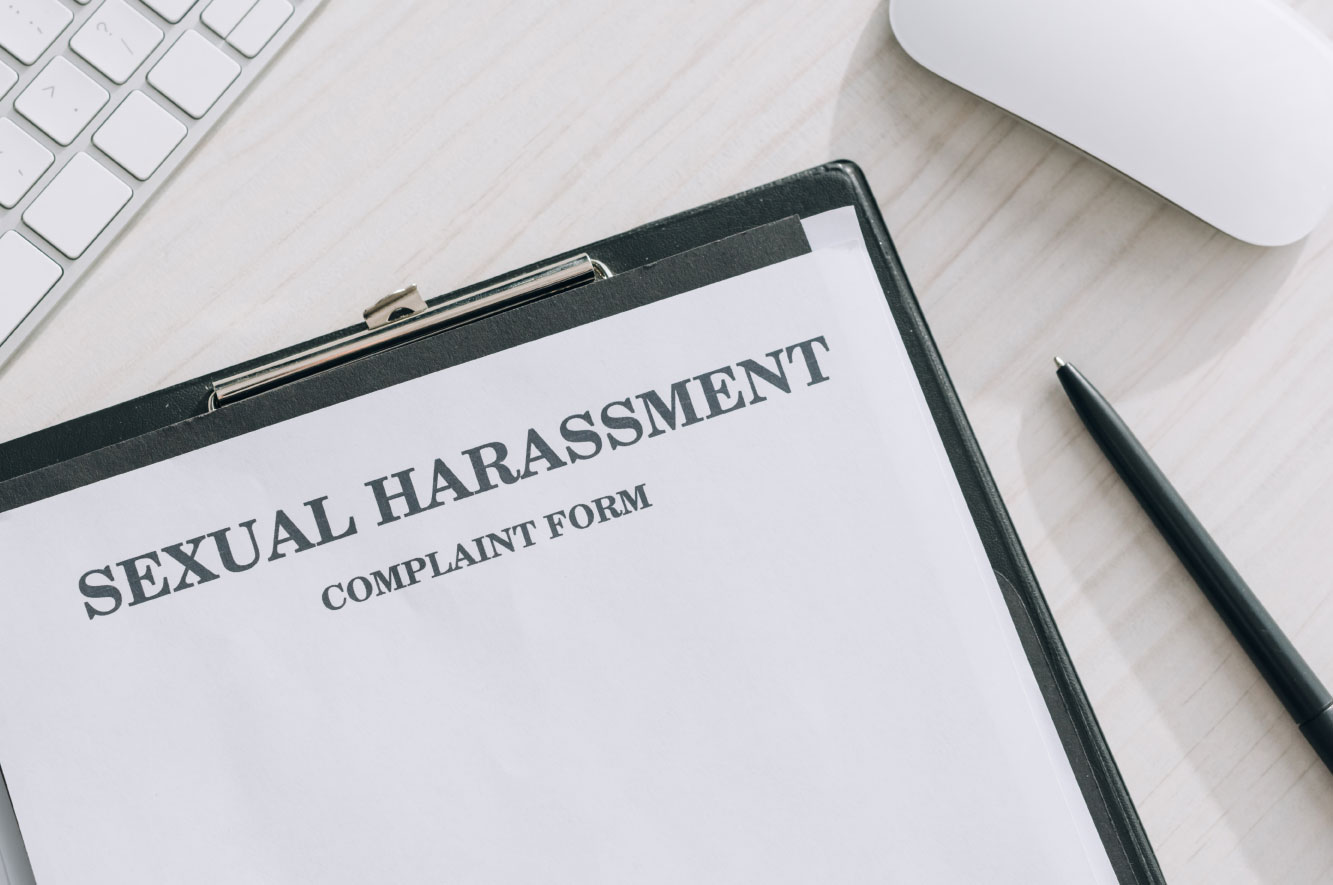Sexual Harassment/ Discrimination
Home Practice Areas Sexual Harassment/ Discrimination
Sexual Harassment/ Discrimination

Sexual Harassment Protection
California’s sexual harassment laws protect the following:- Potential job applicants
- Current and former employees
- Independent contractors
- Interns
- Volunteers
Who can be sued for sexual harassment?
Sexual harassment claims can be filed against an employer who has only one employee or regularly uses the services of at least one independent contractor. Generally, all employees, including individual supervisors, can be held liable if they sexually harass other people. However, if you wish to hold the company liable for the actions of an individual harasser, this will depend on who harassed the employee and/or whether the employer knew about the harassment. If you have experienced any of those behaviors, you should consult a sex and gender discrimination attorney at Falakassa Law, P.C. If you are a victim of sexual discrimination and harassment in the workplace, call 916-619-2029 for a free consultation.What is sexual harassment?
In California, courts generally separate sexual harassment cases into two distinct types of violations, quid pro quo sexual harassment, and hostile work environment.Quid Pro Quo Sexual Harassment
Quid pro quo is a Latin phrase meaning “this for that.” Quid pro quo sexual harassment is when an employer offers an employee some kind of benefit or threatens termination, conditioned upon the employee submitting to a sexual favor. For example, if a manager tells or implies to an employee that they will get a raise or promotion if they sleep with them. Quid pro quo cases often involve unwanted sexual advances, inappropriate discussions of graphic sexual acts, or commentary on the employee’s body and the sexual uses to which it could be put.Hostile Work Environment
Hostile work environment sexual harassment is conduct that creates an abusive work environment. This type of harassment must be severe, frequent, or both. A few mildly offensive comments are usually not enough. Hostile work environment sexual harassment must subjectively offend, humiliate, or distress the victim. To prove that the victim suffered, they must establish the following:- The harassment disturbed their emotional tranquility in the workplace
- The harassment affected their ability to perform their job
- The harassment interfered with and undermined their sense of well-being
What to do when you experience sexual harassment?
Make the harassment known by filing a formal complaint with your Human Resources Department. Also, it is best to start accumulating evidence and proof such as emails, text messages, and a journal of the advances, behavior, and discriminatory remarks of the harassers. For a free consultation, contact a sexual harassment attorney at Falakassa Law, P.C. Set your boundaries by calling 916-680-8486 today.5 - Star Reviews
"I’m so happy I worked with Falakassa and not another lawyer. He fought for my case when it wasn’t looking good. Any other lawyer would have given up on my case but he fought for me until the end. I would recommend him and call him again if I’m ever I’m ever in need of a lawyer."
Sanaz D.
"Josh is my go-to lawyer after my last few interactions with him. He’s extremely sharp, very knowledgeable about his craft and industry, and has tons of experience that showed to an effective lawyer and got me great results."
Daniel M.
"Mr. Falakassa is an ultra professional employment lawyer. He cares for his clients and represents employees only against big companies. He will get you results and I refer/recommend him for any employment law Cases"
Joey N.
"Mr. Falakassa is a well polished employment lawyer. He answered all my inquiries and is always available to answer the phone. He is a great writer and one of the best at what he does. I would go to him for any employment law issues"
Martin S.
“I have gotten to know Mr. Falakassa working with him closely in a professional capacity. He is very smart and professional and he is always ready to go the extra step. I highly recommend him for any employment law dispute.”
Mehrdad B.
“Attorney Falakassa is an outstanding employment lawyer. He took his time and gave me a free consultation and answered all my questions and followed up. He is very sharp and professional. I highly recommend him for any employment law dispute.”
Jonathan H.
“I’m glad to have met Mr. Falakassa. He is a top employment lawyer and truly cares for his clients. He will maximize your recovery. I recommend him for any termination or wage issues!”
Steven A.
“Mr. Falakassa is an outstanding gentlemen and lawyer. He’ll take the time to sit down with you and really get to know you and your legal concerns to provide the best possible outcome. I would definitely recommend this firm for any employment related needs.”